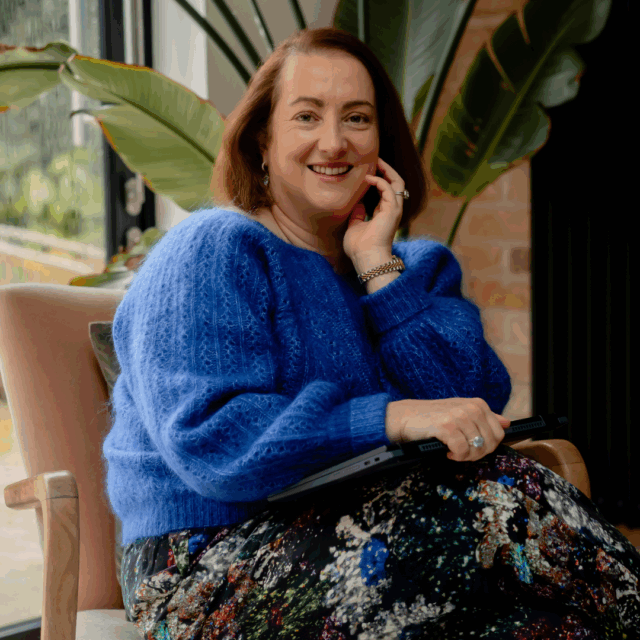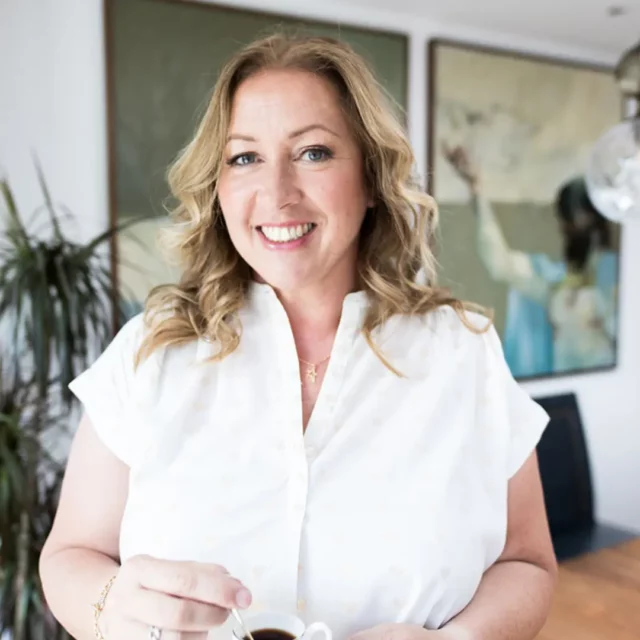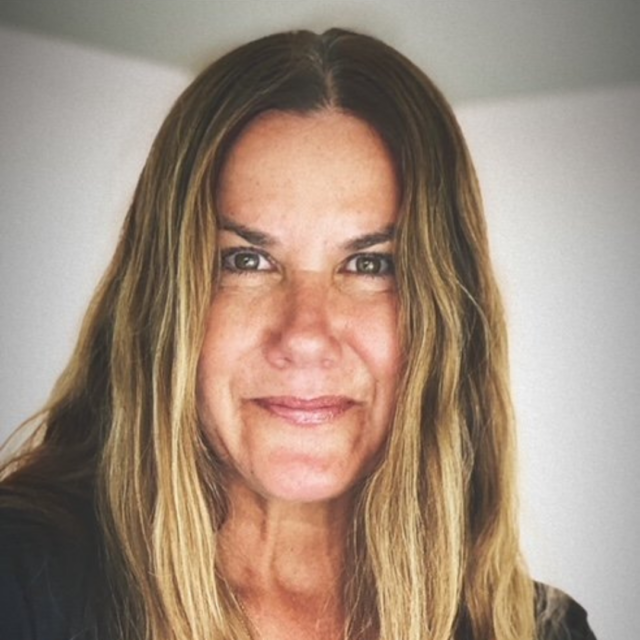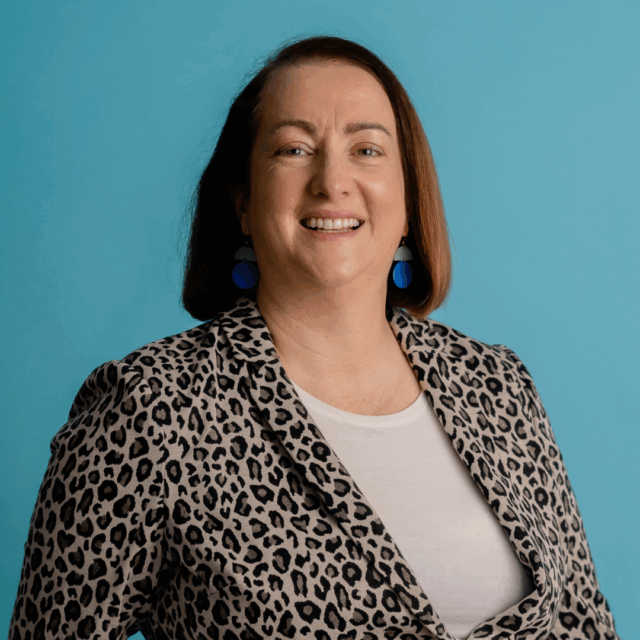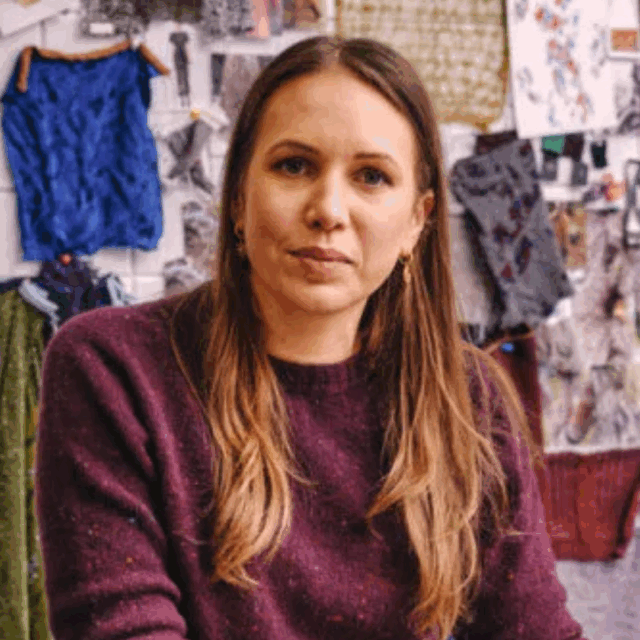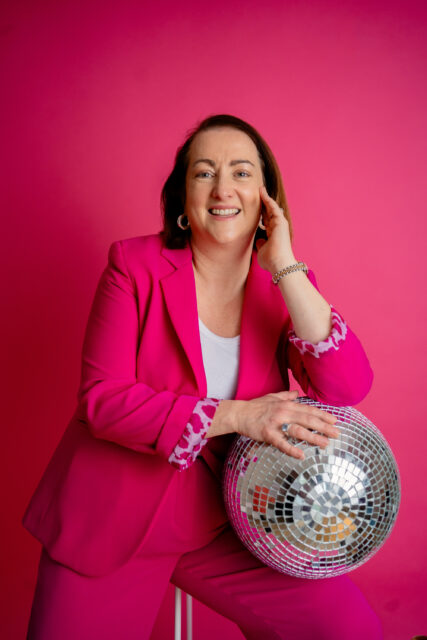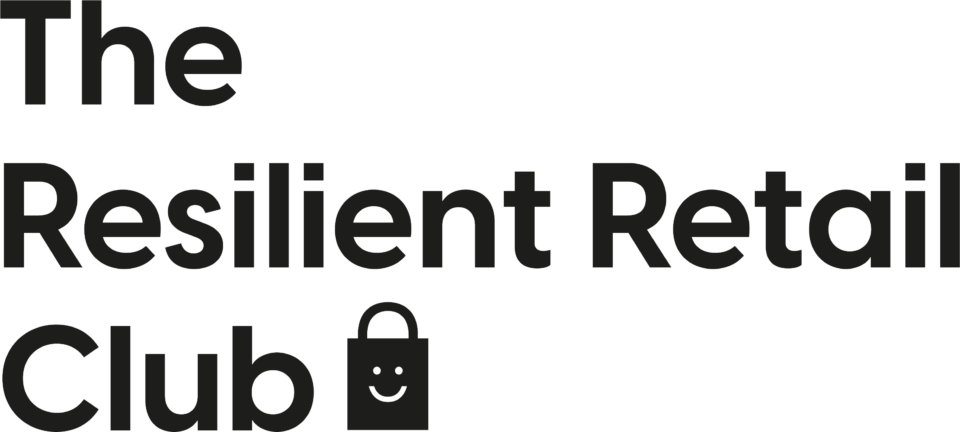Simplifying Marketing for Small Businesses: Erika Robinson on Leveraging Constant Contact
Introduction to Marketing Challenges for Small Businesses
Catherine Erdly: Simplifying your marketing, finding the time to focus on it and actually making it happen is one of the biggest challenges that many small business owners face. And that is the challenge that software platform Constant Contact is aiming to solve with their services.
Meet Erika Robinson from Constant Contact
Catherine Erdly: We’re joined by the UK country manager for Constant Contact, Erika Robinson.
She’s going to be telling us about her experiences as a small business owner, what she sees as the main challenges for marketing for small businesses, And how you can get help.
Catherine Erdly: Welcome to the Resilient Retail Game Plan, a podcast for anyone wanting to start, grow or scale a profitable creative product business with me, Catherine Erdly. The Resilient Retail Game Plan is a podcast dedicated to one thing, breaking down the concepts and tools that I’ve gathered from 20 years in the retail industry and showing you how you can use them in your business.
This is the real nuts and bolts of running a successful product business, broken down in an easy, accessible way. This is not a podcast about learning how to make your business look good. It’s the tools and techniques that will make you and your business feel good. Confidently plan, launch, and manage your products, and feel in control of your sales numbers and cash flow to help you build a resilient retail business.
Erika, thank you so much for joining me today. Do you want to just introduce yourself and Constant Contact?
Erika Robinson: Yeah, certainly. Thank you so much for having me, Catherine. I’m really pleased to be here. My name is Erika Robinson. I am the UK General Manager for Constant Contact. And so Constant Contact is a digital marketing platform. It’s aimed at small businesses, really aimed at businesses with up to 20 employees.
And it’s been around for quite a long time in the US. So we have a 30 year history. We were one of the original pioneers of email marketing. But now we offer so much more than that all your social media, online advertising, SEO, CRM yeah, the full works.
Catherine Erdly: The full works. Fantastic.
Erika’s Journey as a Small Business Owner
Catherine Erdly: And I believe that you are a small business owner yourself. Is that right?
Erika Robinson: I am. Yeah. So I founded a children’s play center actually in Southwest London, in Kingston upon Thames. It’s called Picnic. I set it up now. five years ago, actually. So it’s been around for a while. It was something I really wanted to do, felt passionate about when I had young children. So they’re a bit older now.
They’re too old now to really enjoy it. But uh, back then I had a toddler and a baby and I was really Wanted to be able to take them somewhere nice and there wasn’t really anything in my local area, so why not have a go? So yeah, it’s a definitely a rollercoaster being a small business owner and definitely we’ve had our ups and downs.
I opened, you’ll remember five years ago. It was just before COVID hit. So timing wise wasn’t ideal. I I was open four months and then had to close for quite a long time. We were the last type of business to be allowed to open. So even all the bars and restaurants opened months before us.
But it opened up a brilliant opportunity for me because my intention was not to go back to work, was to be a, a small business owner.
Catherine Erdly: Mm hmm. Mm.
Erika Robinson: World while my business was closed, and I realized I had such a brilliant team behind me.
I’d hired a great team at Picnic, and they were perfectly capable of running the operations themselves , in fact, better than I could because I didn’t actually know anything about running a children’s play center at the time. And yes, I was able to go back to. more of a kind of a strategy type role.
And and I realized as well how my skills were actually in demand in the workplace to understand small business and being able to, build something from the ground up actually was a really valuable skill set for businesses like Constant Contact and the other businesses I’ve worked for since.
So it’s, loads of opportunities for me.
Catherine Erdly: Yeah, I think that’s such an interesting dual perspective to have, that you’re working for a big company like constant contact, but you yourself know what it’s like to be, boots on the ground as it were with a small business and you’ve really lived it and breathed in. I think that does have an impact, doesn’t it?
On a, yeah. Business on the, on a corporate culture to really understand the small business owner.
Marketing Challenges for Small Business Owners
Catherine Erdly: Based on your own experience and also what you’ve seen through working in constant contact, what would you say are some of the biggest challenges that you see for small business owners when it comes to their marketing?
Erika Robinson: I think there’s a few, but the biggest challenge overall for a small business owner is a lack of time. They’re juggling so many different roles, wearing so many different hats. They’re trying to be the CEO, the CMO, the CFO, and they just struggle to, to Find a balance and make time for marketing, but marketing obviously is such a, an important part of running a business that yeah, it’s easy for it to drop by the wayside, especially if a small business owners don’t have the skills either, because that’s the other big challenge.
They’re not experts in marketing. They’ve usually gone into business. Like I did, I went into business because I saw a brilliant opportunity and a gap in the market, or they’ve got a passion or certain skills or expertise in a certain area. It’s not because they love sales and marketing and want to want to focus on that at all.
It’s it’s despite all of that. So that’s a, yeah, a real challenge for small business owners.
Catherine Erdly: Do you think it’s got in a way worse as the more platforms have sprung up that people feel this need that they’ve got to be everywhere, but it’s then, each one of those platforms has their own nuances and their own algorithms and small business owners are feeling this pressure to be everywhere, but they’re still, they’ve still got the same amount of time and the same amount of knowledge.
Erika Robinson: Yeah, there’s more social media platforms than ever, isn’t there? And there definitely is that pressure for small businesses to feel like they need to be everywhere and to keep on top of it all. So I definitely, when I speak to small businesses, I know they definitely feel that pressure.
How Constant Contact Simplifies Marketing
Erika Robinson: But that’s where I think, actually consolidating your marketing into one place is really helpful.
And where tools like Constant Contact can help because if you don’t have to manage all of these individual platforms, you can bring it all together. One message once and it will customize and tailor the messaging to suit all of the different social media platforms and your email as well.
Catherine Erdly: yeah, for sure. It sounds, yeah, definitely. It sounds a lot more streamlined. So I guess that brings us on nicely to my next question, which was so constant contact is 30 year history. Although it said it’s launching in the UK now. And it’s always been, it’s always been focused on small businesses.
Is that always been the kind of main, the main focus for the company? Yeah.
Erika Robinson: It has. Yeah. But what we have seen is some of our small businesses have grown into big businesses over the years. So that’s lovely to see. And we don’t say, oh, you’re too big for us now. But yeah, our focus, our core focus has always been small business.
Catherine Erdly: And how does it specifically, so you mentioned there about pulling and you mentioned actually when you were describing what it does, like lots of different elements to what constant contact does. So how does it, what kind of, what’s the ethos behind making it simple for small businesses?
Erika Robinson: Yeah. That is our. Our whole ethos is to make it as simple as possible for small businesses for anyone that doesn’t have that marketing background. And the way it does that is first of all, as I say, it brings everything together into one place.
The Power of AI in Marketing
Erika Robinson: And secondly, it uses AI. So it’s, brilliantly clever now that you don’t have to craft your own messaging.
You can literally just write a couple of sentences and it will it can also design your emails and your posts as well. So we can bring you can add your images to a kind of central database within the software. It can pick out your logo, it can pick out your brand colors and create something that looks like your business, that looks like you.
And then it can write your, yeah, your emails and your posts just with a few prompts. So you follow some simple steps. So What tone of voice do you want to use? What’s your actual goal in your campaign? How long would you like your campaign to run for?
And simple things like that. Just a couple of sentences and it literally does all the hard work for you. So it will create a whole marketing campaign and schedule that over a couple of months. And optimize for the results that you want to achieve.
Catherine Erdly: Oh, fantastic. Obviously the Christmas shopping period is absolutely crucial for a lot of small businesses. So in that example, If you were say an e commerce business, so you could go into Constant Contact and say, I want to run a, let’s call it Black Friday for ease, I want to run a Black Friday campaign give it the details and then it would basically tell you this is what you need to put out when and even Design the emails for you.
Is that something that would, like that?
Erika Robinson: Exactly. That would be a brilliant prompt to say, I’d like to offer a Black Friday discount to my customers, 10 percent off or, whatever it is, and then it do everything else for you. Yeah.
Catherine Erdly: So you could do that in September and just say, here we go. This is what I like, this is what I want. And so it goes cross platform. So it’s not just email marketing. Then it can do all different social media as well.
Erika Robinson: Yeah. So we have LinkedIn, Instagram. Facebook X so you can link all your accounts and it will optimize the messaging for each of those platforms and even bring in recommended hashtags as well that work across each of those platforms.
Catherine Erdly: Okay. I think yeah, it’s such a fascinating opportunity really for small businesses, isn’t it? Because that’s the thing I think that a lot of people struggle with is that ability to stay consistent. So the idea that You do the thinking in terms of what you want to say when, but then it’s pretty much doing a lot of the heavy lifting and you can presumably tweak everything as well, right?
So if it throws things out and you think, Oh, I like that, but I’d like to put it a little bit differently. You can go in and edit individual.
Erika Robinson: Yeah, you can totally personalize it, make it your own, edit anything you like. But you can also, if you don’t quite like the messaging first time, you can also just push the AI button again, and it just it will keep generating again and again until you like something as well.
Yeah, you can keep going. And then once you’ve scheduled it as well, you can always then go back in at any point if something’s changed in your business. If you like you say, if you wanna plan ahead and, build all this out in September for a campaign that’s going live in November.
A lot can change in two months, but you’ve got that flexibility to go in and edit as often as you like.
Catherine Erdly: Yeah. It’s really fascinating. And I suppose the other thing as well is that then what you’re doing is you’re using technology to level the playing field somewhat, would you say, with the big guys that might have the teams and the resources to map all of this out themselves, whereas if you’re a solopreneur or a small team and you don’t have the time or you’re really pressed for time, that then it’s allowing you to be more consistent than you might otherwise be.
Erika Robinson: Yeah, that’s the exciting thing now, especially with AI. I think so many small businesses look up to big businesses and think, wow, like they’ve got their massive budgets, million pound marketing budgets, and they’ve got huge marketing teams. And I can’t compete with that, but you’re right.
It is leveling the playing field now. It’s making it a lot easier for small businesses to be able to compete. And that’s, yeah, that’s what I find so exciting about it. It’s, yeah it’s really, it’s so exciting now and it’s just changed in such a short amount of time.
Catherine Erdly: Yeah, no, absolutely. I wonder if we’ll get to the point where it’s almost going to be like your backbone content. I think if you’re responsible for creating all of the marketing in your business, then often it becomes inconsistent and it can be something that sort of slides down your to do list.
Whereas if you do have tools like this, we can be sure to have consistency and it’s all tying into your seasonal campaigns. Then I think it also allows businesses the opportunity that, let’s say, that you’ve got regular posts going out, but if you want to do something that’s a bit more fun, a bit more creative, a bit more really unique to you as a business owner, you’ve got the headspace because you’re not worrying about almost like the backbone content going out, that’s all handled and then you can do the sort of.
Real cherry on top type stuff without feeling that pressure. I’m sure it’s the same with the small businesses you talk to. It’s like that pressure of making sure that they’re posting and making sure that their marketing communication is really consistent that almost think can kill the creativity in a way, whereas if you know that stuff’s handled, you maybe could be a little bit more creative.
Erika Robinson: Yeah, I know some people love it. They love posting on social media, but not everyone does, and I’m one of those people that sees it as a burden, to be honest. I’m like, oh, I need to post something. What shall I say? For those people, this is where it’s brilliant because it takes the worry out of it.
It takes the thought out of it. They just, come up with some very basic ideas. And then AI does the rest and it can completely craft the message and it makes it easy.
Catherine Erdly: Get on with doing the things that you do love to do.
Erika Robinson: Exactly. Yeah.
Catherine Erdly: So if anyone’s listening to this and they’re thinking, okay, this sounds interesting. Definitely all about keeping my marketing simple. How do you suggest to small businesses other than using tools, obviously like AI, what tips would you give for anyone who wants to just make it a bit easier, a bit simpler?
Email Marketing and Lead Generation
Erika Robinson: I think a lot of people listening are in the retail business, e commerce maybe have a shop. So for them well, for anybody really, I’d say is look at your emails in particular. We talk about social media and how important that is, but actually, email is 40 times more likely to result in converting to paying customers.
So there’s some great results that we see still from email. And actually how to convert that social media following into an email list. We’ve actually just launched something recently at constant contact, which is a lead magnet tool. And that allows you to be able to, convert those. And it’s, it’s brilliant. It again, uses AI you can just write a simple prompt. It will create a survey for you that you can then put on all your social media platforms, if you’ve got a bricks and mortar shop, you can even print out the QR code and you can put it on your counter in your shop as well.
And capture feedback. So you’re also asking for some, simple feedback through this survey. So you can analyze the results as well. But you’re also then asking for their email and contact details and they’re opting in to hear from you. So that’s a great way to, to expand your email list.
And then once you’ve got that, you can really personalize the message on an individual basis. Email automation is a big part of what constant contact does as well. So that not only saves small businesses time, but it actually creates a really personalized message. And you can create certain triggers.
So yeah, in the e commerce world a lot of your listeners will be familiar with abandoned carts and those kinds of triggers. So we offer all of that kind of functionality as well and win back emails as well.
Catherine Erdly: Yeah, that’s such a good point. And I do think a lot of people miss this about social media, that really ultimately, if you can be focused on your social media, driving your email list. Then that’s an amazing statistic. I’ve heard this before that email converts higher, but not quite to that 40 times, but I could totally believe it because I think, we’re being social on social media a lot of time.
Aren’t we? We’re looking at cat videos and friends, wedding pictures, and then you see messages from businesses. Whereas when it’s email, it’s actually in your inbox and it’s you’ve You liked them enough to give them your email address. So it’s often a better bet in terms of actually converting, but that’s really interesting.
So it doesn’t just do the sort of marketing posts out, you can actually get it to design something that is designed to convert your social media followers into email.
Erika Robinson: exactly. Yeah, that’s a brand new tool. As I say, that’s just launched in the UK before anywhere else in the world. And I should say that stat that I mentioned is a McKinsey report from 2023. So I was like, equally surprised, like you, I knew email did have better results, but I hadn’t realized quite how significant it was.
Catherine Erdly: It puts it all into perspective. And I suppose also, I think it’s worth reminding people that if you look at your social media as a, as an email marketing capture tool effectively Then that’s really just what you need, isn’t it? Also, if one day you wake up and the platform’s decided that you’re banned for some spurious reason and you can’t get through to support, which I know unfortunately does happen.
If you’ve got that email list then at least you can. You own those contacts, right?
Erika Robinson: Yeah, that’s the big difference, isn’t it? And it’s, I think that’s a risk for everybody. It went that a social media first, you’re right. You own your email list and no one can take that from you.
Catherine Erdly: Yeah. Yeah. Fantastic.
Constant Contact’s UK Launch and Future Plans
Catherine Erdly: So you mentioned Constant Contact’s got this 30 year history and you’re now launching in the UK. So what’s next?
Erika Robinson: We are fully behind the the UK market. We’re really excited to be in the UK now. And we’ve had a presence in the UK before. And we have a a decent sized customer base already, but this is the first time that we’re really investing heavily in the market. And yeah, it’s really exciting.
We’ve already launched support in UK hours. We’re building out a team here. We will continue to build up that team into next year. We have a really exciting roadmap. We’re really innovative as a company. company. I can’t share all the details yet, but I’m super excited by how quickly we are able to innovate.
Watch this space for the new releases. It’s so entrepreneurial here in the UK. We really want to be part of that small business community and help small businesses. Yeah. We just feel like we’re a perfect match to, to get involved and be part of that community.
And also just have some fun on the way. Because I don’t know, you were about our launch and we’ve had Mr. Motivator involved. Yeah, we know how to have fun as well.
Catherine Erdly: Yeah, I should say for anyone listening, I went to the constant contact launch party, which was, I was delighted to be invited. And Mr. Motivator led several flash mobs in Waterloo station.
Erika Robinson: Victoria
Catherine Erdly: Victoria station.
Erika Robinson: Yeah.
Catherine Erdly: Yeah. In Victoria station. And it was great to see. Yeah, it was a lot of energy.
I know you are UK based, but obviously with constant contacts, US history, I’ve often wondered the difference between small business world in the U S and the UK. Obviously the U S is a much, much bigger market, but do you think that you mentioned the UK is very entrepreneurial?
Do you see that as like a key differentiator that, that people really get behind small business? I think I’m sure that in the U S too, but obviously I really see that in the UK. Yeah.
Erika Robinson: The US is very entrepreneurial as well, but I think one of the key differences is people prefer to go to trusted brands that they know in the US, whereas in the UK, people tend to want to support the underdog a little bit more. There’s so much support for small business.
We did a constant contact survey, that showed that 80 percent of consumers will shop with a small business that they hadn’t shopped with before in the run up to Christmas. So for this Christmas. And I think that’s lovely. They really they really want to support small businesses.
And I think it’s great if you are a small business to really, Make it known that you are small and shout it from the rooftops and let everyone know because you will see that support both in your local community and, online as well.
Catherine Erdly: Yeah, no, I completely agree. And I always think when you see big businesses like eBay and Amazon, they make a real point of saying that small businesses sell through these platforms because they’ve realized that the customer sees buying from a small business as a positive thing. And which.
To me is really heartening because it means that, that the public wants to hear from small businesses and always say that when people think, Oh, I don’t know if I’m bothering people with my messaging. No, people really want to hear this stuff. They don’t know they want to engage with small businesses, which is fabulous and such a great opportunity.
Erika Robinson: That’s right. And small businesses are just a bit more afraid to, yeah, to, to, contact people as often as the big businesses do and and announce that they’re here and share their offers. It’s just going back to that lack of marketing knowledge and lack of marketing expertise and a fear of overburdening and over communicating.
Catherine Erdly: Fantastic. Thank you so much. It’s been an absolute pleasure having a chat with you today.
A Special Offer fro
Catherine Erdly: And do you want to tell us more about how people can find out about constant contact?
Erika Robinson: Yeah, I can. And you did mention Black Friday. I didn’t realize it was coming out around that time. So I do I should announce that we are we do have a Black Friday offer which will run over the Black Friday weekend, which is 15 percent off. So to hear more or find out more, visit our website, www.
constantcontact. com. And look out for the 15 percent off for three months. You can also Try, ask completely free a 30 day trial, no credit card details needed and you can get to try out all the functionality and see if it’s right for you. And for those in the e-commerce world, we integrate with all the major e-commerce platforms like Shopify and WooCommerce.
So give it a go and see if it works for you.
Catherine Erdly: Thank you so much for listening to today’s episode. Why not come over to Instagram at resilient retail club, share a photo of where you’re listening. I always love to see that and let me know what your key takeaways were and why not, if you have a moment, rate and review the podcast within iTunes or Apple podcasts.
You can also rate the podcast within Spotify. And of course, if you follow like subscribe, whatever it is, then you’ll be the first to know about every new episode, which comes out each Thursday.

